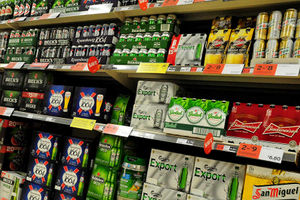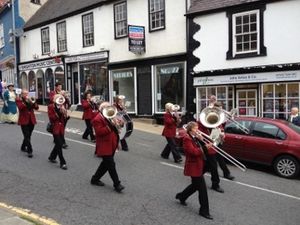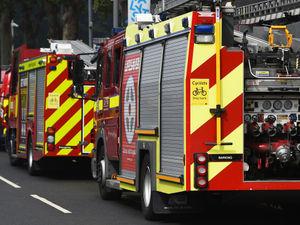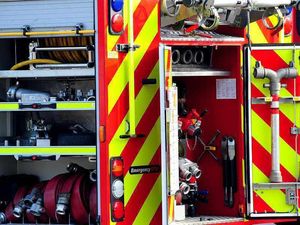Binge drinking is not just a city problem
The latest figures for alcohol consumption in Shropshire, revealed today, make for sobering reading.

The problem of drinking too much sounds as if it belongs firmly in Britain's city centres, not a quiet rural county like Shropshire.
But the facts laid bare today indicate there is much work to do on tackling binge drinking and excessive alcohol consumption right here in Shropshire.
A draft multi-agency report called the Shropshire Alcohol Strategy for 2013 – 2016 suggests 90 per cent of Shropshire residents, about 216,000 people, are currently drinkers.
Perhaps the most alarming figure from the report is that nearly a fifth of Shropshire residents are binge drinkers.
It means about 40,000 Shropshire people drink alcohol to excess during short drinking sessions.
Furthermore, Shropshire has 7,500 people classed as being alcohol-dependent.
Young people are in the grip of alcohol addiction too, with 35 per cent of under 18s referred to the Young People's Substance Misuse Service doing so for alcohol misuse.
So how did it get so bad in Shropshire?
Officials from Shropshire alcohol and addiction charity IMPACT believe there is a 'secret' drinking culture fuelled by the availability of cheap booze in shops and supermarkets.
Wendy Condlyffe the charity's marketing and service development officer, said there are about 240 people with alcohol addiction on its books.
They get regular support and counselling from workers in seven GP surgeries across Shropshire after being referred by doctors for treatment.
Wendy says: "We would rather have less alcohol available in the supermarkets and cheaper alcohol in pubs.
"If you buy drink from the supermarket you can be secretive about it.
"When you drink in pubs it is more sociable and everyone can see what you are drinking so you are less likely to see people drinking to excess."
She added that people were unaware of the length of time it took for alcohol to completely leave the system.
"There is ambivalence around alcohol limits. If you had four of five pints of Stella and stop drinking at 10 o'clock it would take 14 hours for the alcohol to leave the system.
"So you would still be over the limit at 9am in the morning when you are going to work.
"It's not just the danger of drunk driving, but there is a danger to people who use machinery or drive fork lift trucks for example."

Britain's love affair with alcohol undoubtedly takes its toll on the emergency services, which costs us all money.
But what can be done to reduce the number of domestic fires linked to excessive drinking, and what can we do to prevent the accident and emergency departments at our hospitals from filling with town centre drunks at the weekends?
Dr Charles West, a retired GP who spent more than 25 years treating patients in Church Stretton and Shrewsbury, today described alcohol as one of the big problems facing society.
He said he believes it may be time to set a minimum price for alcohol, similar to a scheme in Scotland.
Dr West says: "My initial reaction is that the fact that 90 per cent of Shropshire people drink alcohol isn't surprising.
"Of course that covers many people who drink occasionally and responsibly, but there is no question that alcohol is a problem.
"Some people who drink too much develop heart and liver problems, but the worst damage is done socially in terms of fights, accidents and domestic incidents.
"I spent an interesting evening with the police in Shrewsbury a while ago, and pretty much every call they had was related to alcohol.
"A lot of the problem spills into A&E departments so alcohol does have an enormous social and medical cost. "The question is how to deal with that cost without penalising the people who drink sensibly.
"I believe there is now a strong case for setting a minimum price for alcohol.
"Doing so would also help pubs because so many are closing. It's got a lot to do with the discount prices on alcohol in supermarkets.
"The idea of setting a minimum price would almost certainly reduce binge drinking and stop the 'pre-loading' with alcohol that people do when they go out these days to avoid paying higher prices in pubs and bars."
The report, produced by police and local health trusts among others, states that tackling drink problems in the young will be the key to improving the situation in Shropshire.
It adds: "Whilst Shropshire has continued to make considerable progress in developing responses to alcohol related harm, it is recognised that there is still further work to do.
"Effective partnership work is vital in order to continue to reduce alcohol related harm and reverse the rising trends in alcohol related harm."




